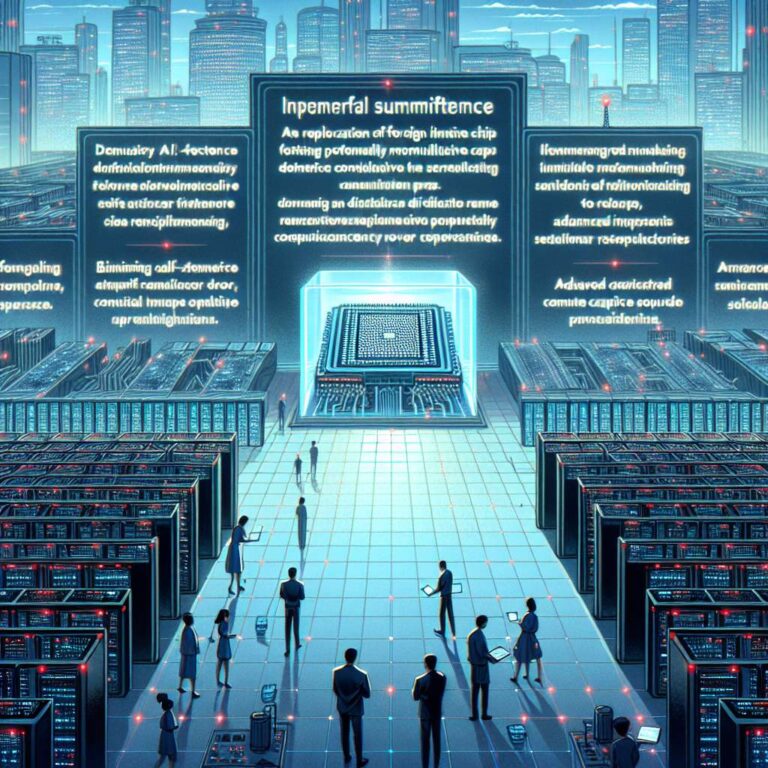Chinese regulators have issued guidance requiring all state-funded data centre projects to use domestically manufactured artificial intelligence chips, according to reporting cited in the article. Projects that are less than 30% complete were instructed to remove any installed foreign-made chips or cancel pending orders, while more advanced builds will be evaluated on a case-by-case basis. Reuters is quoted as the source for the directive, which is described as part of Beijing’s accelerated push toward chip self-sufficiency in critical infrastructure.
The policy directly affects major foreign suppliers that sell data centre processors to China, including Nvidia, AMD and Intel. Analysts cited in the article say the guidance could effectively shut Nvidia out of an important market and create opportunities for domestic rivals such as Huawei technologies. The rules explicitly cover Nvidia’s H20 chips, which are the most advanced models currently permitted for sale to China, and reference higher-performance processors such as the B200 and H200, which are barred under existing U.S. export rules but have reportedly circulated through grey-market channels. Nvidia chief executive jensen huang has urged Washington to relax export restrictions, arguing limited access preserves U.S. influence in the global artificial intelligence race.
The move comes amid broader tensions over U.S. export controls aimed at limiting technology transfer that could benefit the Chinese military. Beijing has previously discouraged purchases of top-end foreign chips and showcased data centres running entirely on homegrown artificial intelligence processors. The article notes that many Chinese artificial intelligence data centre projects have received public financing since 2021, suggesting the guidance could have sweeping implications depending on whether it applies nationwide or only in selected provinces. It also recalls prior actions such as the 2023 ban on micron products from critical infrastructure, which prompted the U.S. memory chipmaker to exit the Chinese server market.

